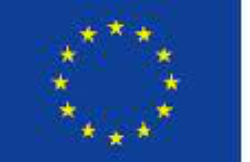Feb. 23, 2015
Breaking news

The theme of the relationship between regulation and innovation finds every day new illustrations. The example of the drone is particularly noteworthy.
Indeed, the drone is a technical object that moves in the air without being driven in an immediate way by the hand of man.
The legal mechanism of qualification brought the drone in the category of "aircraft" and submit it to the regulatory power of the civil aviation regulator.
The regulation of civil aviation is primarily a safety regulation, not a regulation of the sector's economic deployment.
This is why regulators have taken restrictive positions on drones used for commercial purposes, to the extent that the presence of human beings, most the pilots, are the condition for the safety of people. The fact that the drones fly with "no one" led to consider as a danger a prior, which led regulators to take restrictive measures on flying drones for commercial purposes, restricton consistent with the regulator's intervention criteria, without taking into account external rules, such as the protection of privacy.
But whatever the sector, regulators see themselves increasingly as economic regulators. If we adopt this perspective, a restrictive approach appears to be nonsense.
In the interests of balance in both approaches, the safety of people and the economic development through innovation, the US civil aviation regulator, the Federal Aviation Administration is developing new rules.
February 11, 2015, Federal Aviation Administration raised the need for a legal framework for commercial drones. The reason for this is economic. As it writes: "It is anticipated that this activity will result in significant economic benefits". Indeed, Article 333 of the 2012 ACT of modernization and reform imposes registration procedure for every commercial unmanned flying object in the sky!footnote-28. But this hinders business development, and therefore the incentive to technical innovation drone.
It was necessary to find a balance between security of persons and lifting of barriers to economic development. This is why the FAA will distinguish between "small" and other drones. The former are particularly useful in agriculture. To the extent that the former do not constitute danger to persons, an exemption from this procedure (Article 333 exemption) may be given concerning them.
One can analyze this evolution of air Regulation in two ways. First, it is for air regulator to take into account fundamental innovation of flying machines with "no one": innovation will be the base of a huge market for which strict regulatory rules could have been the troublemaker. The consideration of the safety of people remains since only drones "small" are allowed. In addition, they will have to remain at low level and away from airports and housing.
Second, the Regulator reacts by pragmatism. The ban on commercial flight drones hasn't prevented investment in this area. So far, the regulator had instead chosen not to react to the open violations of the standards, from the moment that the safety of the people wasn't in danger. The idea of the new conception is to promote this new market by putting the rules protecting the physical safety of people.
Jan. 12, 2015
Breaking news

France Stratégie is the French public body that advises the French Government on economic and social policies.
In January 2015, one of its researchers, Medhi Nemri, published an analytical note: "Demain, l'Internet des objets (Tomorrow, the Internet of Things)".
The release sees the Internet as a "essential facility" whose development capabilities will allow interaction between objects: the "Internet of Things". This world of "connected devices" would be a "tipping".
Indeed, the objects are connected in the industrial system (smart manufacturing) and the municipal utilities are beginning to organize themselves in the same way. The note stresses the importance of fostering an open platform for all public services. Private space is organized in the same way, for example health, but individuals often see these connected objects as gadgets. Yet by the technology platforms, interconnection allows a general improvement of services. The more traditional companies may depend on Internet companies developing these platforms.
The issue of power of this economy are standardization and standard naming of objects. In this ecosystem, data are the creation of economic value.
The author of the paper proposes the idea of a "right to experiment" way to foster innovation. This would in mobility, health management, insurance. The note doesn't specify the consequences of such a "right to experiment": Does this mean a decline in sectoral regulations?
In any case, the note stresses the need to reaffirm the rights of persons and to protect privacy.
Updated: Sept. 25, 2012 (Initial publication: Dec. 12, 2011)
Sectorial Analysis

Translated Summaries
In The Journal of Regulation the summaries’ translation are done by the Editors and not by the authors
ENGLISH
On July 28, 2011, the European Court of Justice rejected an appeal by an Italian digital terrestrial broadcaster against a ruling of the European General Court, which had also rejected an appeal against the European Commission’s condemnation of Italy for having subsidized the purchase or rental by consumers of equipment for the reception of digital terrestrial television broadcast signals, since this was an indirect provision of state aid to the broadcasters.
FRENCH
Le 28 juillet 2011, la Cour de Justice de l’Union Européenne a rejeté un appel interjeté par un radiodiffuseur italienne numérique terrestre contre une décision de la Cour européenne de première instance, qui avait également rejeté un recours contre la condamnation prononcée par la Commission européenne de l’Italie pour avoir subventionné l’achat ou la location par le consommateurs d’équipements pour la réception de télévision numérique terrestre des signaux de télédiffusion, puisque ce fut une prestation indirecte, constitutive d’aides d’Etat au bénéfice des radiodiffuseurs.
SPANISH
El 28 de julio de 2011, el Tribunal Europeo de Justicia rechazó una apelación de un emisor italiano digital terrestre contra una resolución del Parlamento Europeo y del Tribunal General, que había rechazado también un recurso de apelación contra la condena de la Comisión Europea de Italia por haber subvencionado la compra o el alquiler de los consumidores de los equipos para la recepción de señales digitales terrestres de televisión, ya que esta era una disposición indirecta de las ayudas estatales a las emisoras.
DEUTSCH
Am 28. Juli 2011 hat der Gerichtshof der Europäischen Union eine Beschwerde von einem italienischen digitalen terrestrischen Sender zurückgewiesen gegen eine Entscheidung des Europäischen Gerichts Erster Instanz, die auch abgelehnt hatte Einspruch gegen der Überzeugung, in der Europäischen Kommission Italien nach dem Kauf oder Leasing von der Consumer-Geräten zum digitalen terrestrischen Fernsehsignale empfangen subventioniert haben, da es ein indirekter Nutzen war, um eine staatliche Beihilfe für Broadcaster.
ITALIAN
Il 28 luglio 2011, la Corte di Giustizia Europea ha respinto un appello di emittente italiana di digitale terrestre promosso contro una decisione della Corte generale europea. Anche tale Corte aveva respinto l’appello promosso contro la decisione della condanna dello Stato italiano per aver sovvenzionato l’acquisto o l’affitto da parte dei consumatori di un decoder, in quanto costituirebbe un aiuto statale indiretto alle emittenti.
.................
Other translations forthcoming.
Updated: Sept. 19, 2012 (Initial publication: July 12, 2012)
Sectorial Analysis

Translated summaries
ENGLISH
France and Italy had subsidized rail alpine highway, but the project was behind schedule. Thus, an prolongation of governments support was necessary. The European Commission admittedit in its decision of 11 June 2012, because States are committed the concession will be effective on June 30, 2013 and mostly because this mode of transport will be an alternative to transporting goods.
FRENCH
La France et l’Italie avaient subventionné l’autoroute ferroviaire alpine, mais le projet a pris du retard. Ainsi, une prolongation du soutien des gouvernements était nécessaire. La Commission européenne l'a admis dans sa décision du 11 Juin 2012, parce que les États se sont engagés et que la concession sera effective le 30 juin, 2013, surtout parce que ce mode de transport sera une alternative au transport routiers par camions des marchandises.
Updated: July 23, 2012 (Initial publication: July 16, 2012)
Breaking news

Updated: July 13, 2012 (Initial publication: July 13, 2012)
Contributions

Updated: July 9, 2012 (Initial publication: June 29, 2012)
Breaking news

Updated: June 26, 2012 (Initial publication: June 19, 2012)
Breaking news

Updated: June 19, 2012 (Initial publication: June 12, 2012)
Breaking news

Updated: June 4, 2012 (Initial publication: May 27, 2012)
Breaking news

Updated: May 9, 2012 (Initial publication: April 14, 2012)
Breaking news

Updated: April 3, 2012 (Initial publication: March 12, 2012)
Contributions

Updated: Dec. 21, 2011 (Initial publication: Dec. 21, 2011)
Thesaurus : Doctrine
Updated: Dec. 21, 2011 (Initial publication: Dec. 12, 2011)
Contributions

Updated: Dec. 9, 2011 (Initial publication: Oct. 12, 2011)
Contributions

Updated: Aug. 30, 2011 (Initial publication: June 3, 2011)
Contributions

Updated: June 28, 2011 (Initial publication: May 28, 2011)
Releases : I. Isolated Articles

ENGLISH
In the most developed nations, as in emerging countries, the economy and society are currently being entirely transformed by an industrial revolution originating in information and communication technologies.
Anti-competitive Behaviour Audacity - Autorité de Régulation des Communications Electroniques et des Postes (ARCEP - French Electronic Communications and Posts Regulator) - Communication - Competition - Confidence - Cooperation - Darwin - Digital revolution - Discrimination - European Commission - Ex ante / Ex post - Fiber optic - Future - impredictibility - Information - Infostructure - Infrastructure - Innovation - Internet - Lamarck - Napoleon - Network - Overregulation - Risk - Uncertainty - Underregulation *
* In The Journal of Regulation, these keywords are done by the Editor and not by the Author.
ITALIAN
Articolo: Innovazione e regolazione al servizio della rivoluzione digitale
Nelle nazioni le più sviluppate, nonché negli stati in via di sviluppo, l’economia e la società sono completamente trasformati da un rivoluzione industriale che trova le sue origini nelle teconologie d’informazione e di comunicazione.
Autorité de Régulation des Communications Electroniques et des Postes (ARCEP – Autorità francese di regolazione dei servizi postali e di telecomunicazione) – Commissione Europea - Comportamento anticoncorrenziale – Comunicazione – Concorrenza – Cooperazione – Darwin – Deregolamentazione - Discriminazione - Ex ante / Ex post – Fibra ottica – Imprevisibilità – Incertezza - Inflazione normativa - Informazione – Infostruttura – Infrastruttura – Innovazione – Internet – Lamarck – Napoleone – Rete – Rischio - Rivoluzione digitale *
* In The Journal of Regulation, le parole chiave sono responsabilità dell’Editore e non dall’Autore.
PORTUGUESE
Artigo: Inovação e Renovação a serviço da Revolução digital.
Nos países mais desenvolvidos, bem como nos em desenvolvimento, a economia e a sociedade vem sendo, atualmente, completamente transformados por uma revolução industrial baseada em tecnologias da informação e da comunicação.
Comportamento anti-concurrencial – Autoridade de regulação das comunicações eletrônicas e dos correios (ARCEP – Regulador francês de Comunicações e dos Correios) – Comunicação – Concorrência – Confiança – Cooperação – Darwin - Revolução digital – Discriminação – Comissão Europeia – Ex ante / Ex post – Fibra ótica – Futuro – Imprevisibilidade - Informação – Info-estrutura – Infra-estrutura – Inovação – Internet – Lamarck – Napoleão – Rede – Sobre-regulação – Risco – Incerteza – Sub-regulação.*
* No Journal of Regulation, as palavras-chave são fornecidas pelo Diretor, e não pelo Autor.
SPANISH
Artículo: Innovación y regulación sirviendo la revolución digital
En las naciones más desarrolladas, tal como en los países emergentes, la economía y la sociedad están actualmente siendo transformadas por una revolución industrial provenientes de las tecnologías informáticas y de telecomunicaciones.
Other translations forthcoming.
